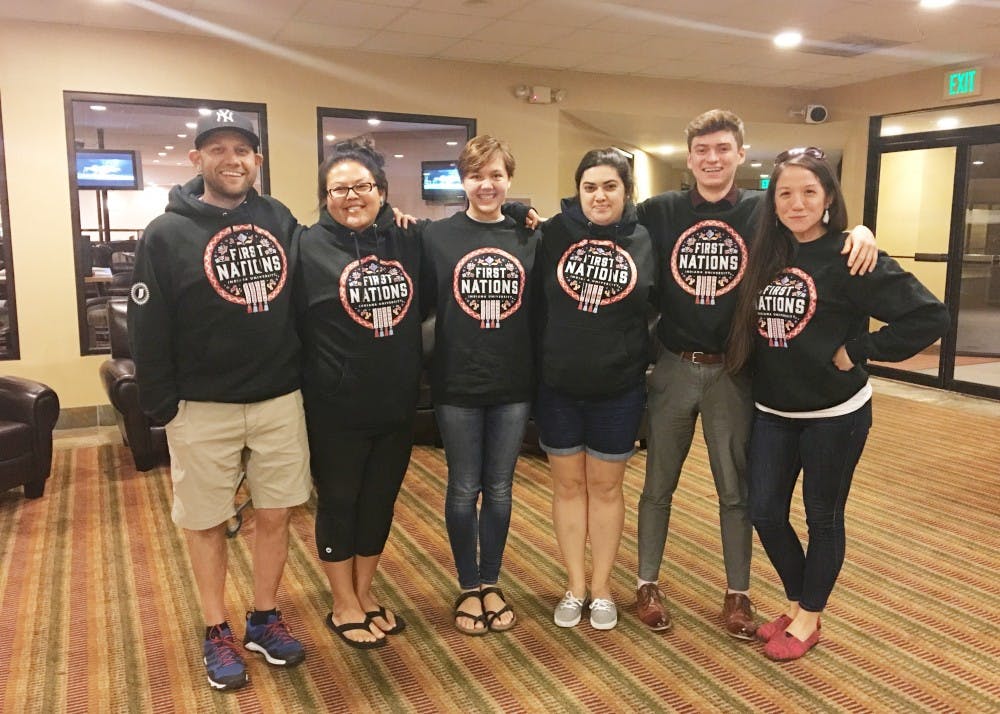As Halloween neared, one student at Briscoe Quad dressed up in a Native American Halloween costume and chanted and danced through the halls. Freshman Caleb King, an IU student with Native American heritage, said he felt it was inappropriate.
“It feels oppressive when people do that, like they’re taking your culture away from you and wearing it as a joke,” he said.
King said it can be stressful having to defend his culture during situations like that.
“I’m sick of fighting back,” he said.
Sometimes being a student with Native American heritage at IU can feel isolating, he said. A way to alleviate this is to connect with other native communities outside of IU's campus.
To do this, many members of the First Nations Educational and Cultural Center are reaching out to Native American students at other Big Ten universities to maintain a feeling of community.
“Community is a big basis of Native American culture,” King said. “It’s important to connect with other native communities to strengthen your own.”
This October, six members of FNECC traveled to Purdue University for the second annual Big Ten Native American Conference, where they interacted with students and staff from other Big Ten Schools. The conference included keynote speakers, presentations from students from each university and group discussions about the realities of being Native American students on a college campus.
“There’s this common feeling of isolation that you get being on a campus like IU’s where Native American heritage isn’t often recognized,” said graduate student Lydia Curliss, who attended the conference. “It was nice to talk to people from other universities with similar experiences who know what you’re going through.”
King spoke similarly of his experiences at the conference. He said he felt relief in not having to validate his heritage to others.
“As someone who’s white-passing, sometimes I feel like I have to prove my culture to people,” he said. “No one questioned your identity at the conference."
All of the students present at the conference had a chance to discuss conflicts they were experiencing with their culture and receive advice from one another.
Many feeling weighed down by the stress of maintaining their culture, IU students said that they knew they needed to make a change once they returned to campus.
“Our goal shifted from giving all of our time to teaching non-native students about our culture to focusing primarily on ourselves and what we need,” FNECC Director Nicky Belle said.
Curliss agreed with Belle, saying that while the center still wants to interact with non-native students, spreading themselves too thin is not the solution.
“We’re really trying to take care of ourselves first,” she said.
Belle said a key part to FNECC members taking care of themselves is to maintain connections with the students from the conference.
Currently, the FNECC hopes to have a future Big Ten Native American Conference at IU in the fall of 2019, as part of IU’s Bicentennial Plan. Belle said they want to collaborate with the Big Ten schools to continue sharing their experiences and collaborate on ways to improve their cultural centers.
“Going to that conference made me realize that I need a community like that to be healthy,” King said. “I don’t want to live without it.”




